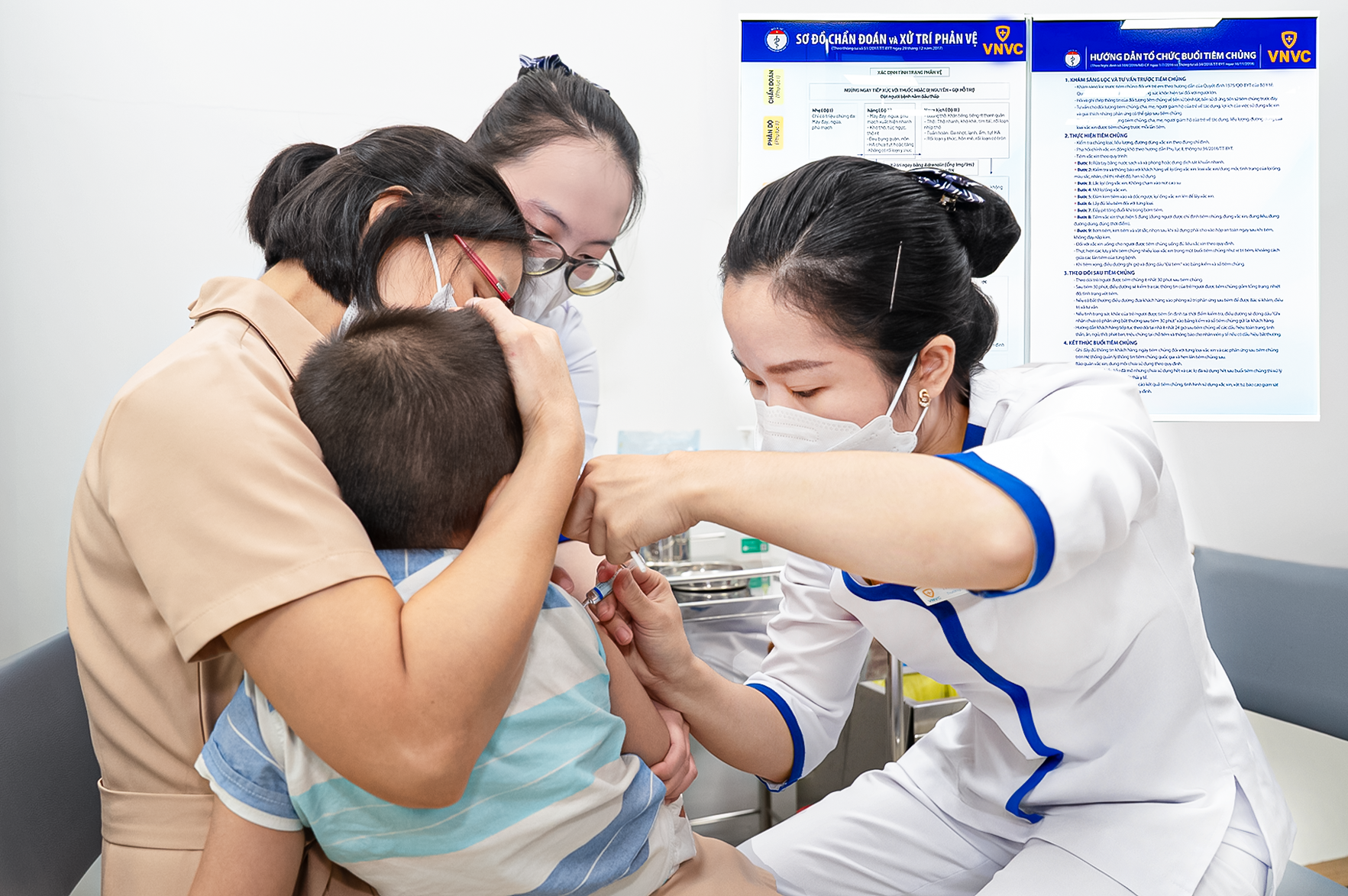According to a representative from the VNVC Vaccination System, the vaccine is produced by Pfizer in Belgium. This is the first vaccine indicated for individuals from 6 weeks of age to adults to prevent meningococcal disease. The vaccine is formulated using conjugate technology combined with tetanus toxoid protein (TT) to help “train” the immune system to recognize and eliminate meningococcal bacteria. As a result, the vaccine helps create lasting antibodies, maintains long-term immune memory, and reduces the rate of asymptomatic carriers.
VNVC has been supplying this vaccine since 15/8. According to Dr. Bach Thi Chinh, Medical Director of VNVC, the new meningococcal vaccine has an age-based schedule. Children from 6 weeks to under 6 months of age receive two primary doses 2 months apart, with a booster (third dose) administered from 12 months of age and at least 2 months after the second dose. Children from 6 months to under 12 months receive one primary dose, followed by a booster (second dose) from 12 months of age and at least 2 months after the first dose. Children from one year old receive one primary dose. Individuals 15 years and older who continue to be at risk should receive a booster dose at least 4 years after the previous dose.
 |
Vu Thi Thanh from Vinh Loc commune, TP HCM brings her 4-year-old son for meningococcal vaccination at VNVC on the morning of 15/8. Photo: Moc Thao |
Vu Thi Thanh from Vinh Loc commune, TP HCM brings her 4-year-old son for meningococcal vaccination at VNVC on the morning of 15/8. Photo: Moc Thao
Doctors will determine a specific vaccination schedule after screening individuals at high risk of invasive meningococcal disease, including those with immunodeficiency, complement deficiency, splenectomy, abnormal spleen function, HIV infection, those undergoing immunosuppressive or complement-inhibiting therapy. The vaccine is expected to cost around 1.7 million VND per dose.
To date, five meningococcal vaccines are available in Vietnam. Dr. Chinh noted that meningococcal vaccines do not offer cross-protection, so children and adults should receive a combination of group B and group A, C, Y, W vaccines for full protection against all five disease-causing serogroups.
Meningococcal disease is an acute bacterial infection transmitted through the respiratory tract, affecting people of all ages. Based on the site of infection, the disease is classified into clinical forms such as purulent meningitis, septicemia, septic shock, and arthritis. Purulent meningitis and septicemia are the most common. These diseases can leave serious long-term effects such as intellectual disability, deafness, and paralysis, with rates of 10-20%, and a mortality rate of 8-15% even with intensive treatment.
In Vietnam, the disease is endemic and reported sporadically in many localities, usually occurring in the winter and spring, and is classified as a group B infectious disease. Crowded areas such as kindergartens, schools, and dormitories facilitate faster spread of the disease.
In addition to vaccination, people are advised to practice regular personal hygiene, maintain a nutritious diet, exercise to improve physical condition, and ensure cleanliness at home and in the workplace to prevent meningococcal disease. If symptoms are suspected, individuals should seek medical attention or immediately notify the nearest health authority.
Gia Nghi












